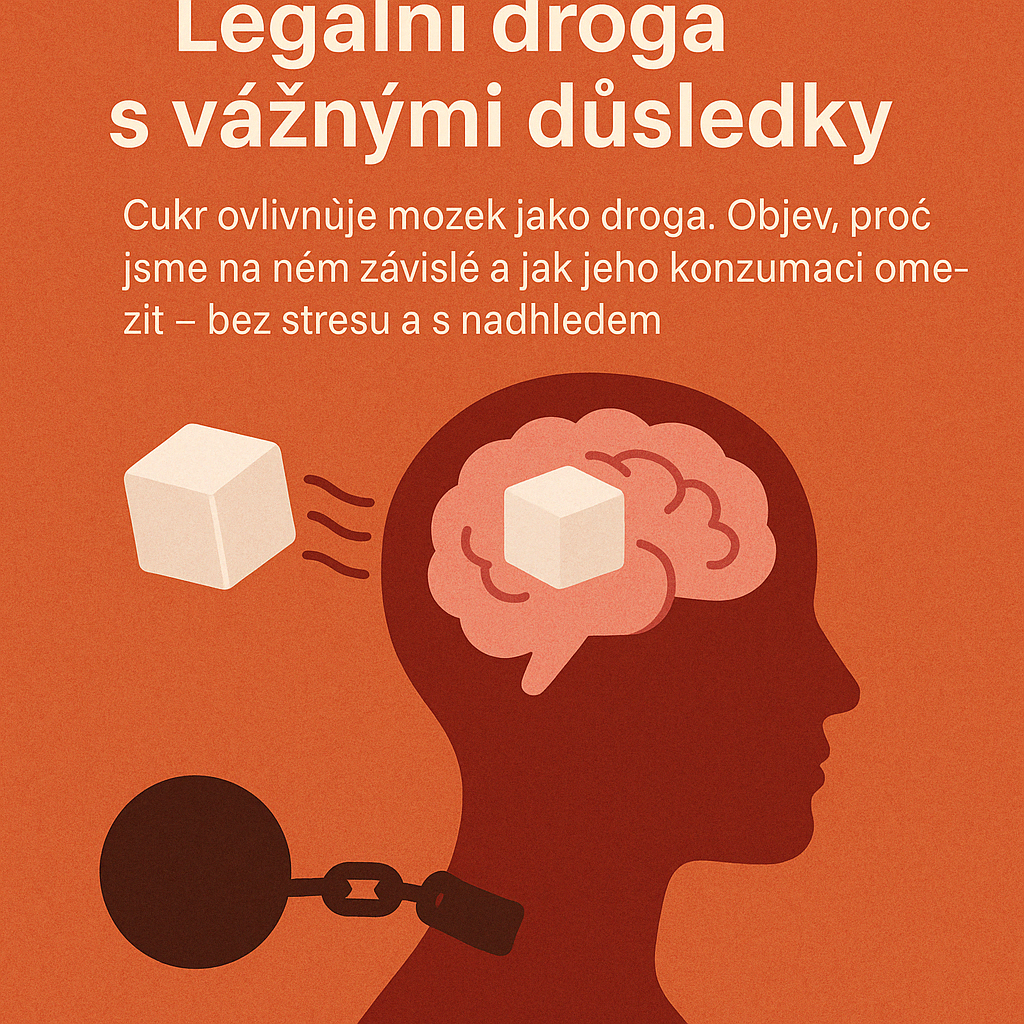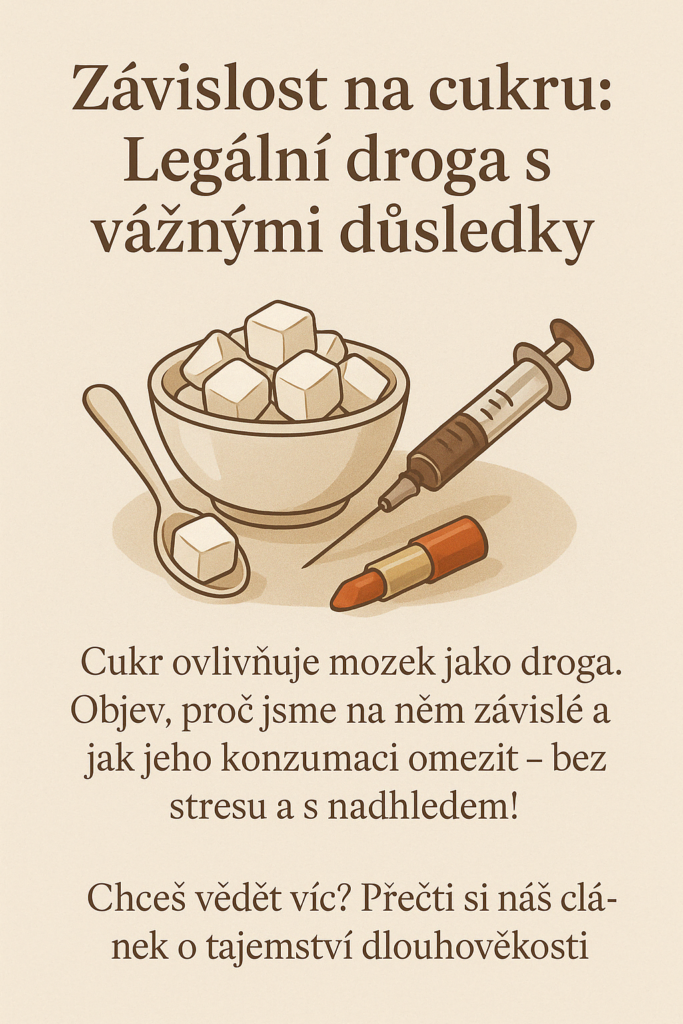
SUGAR: A legal drug with serious consequences!
Sugar affects the brain like a drug. Discover why we're addicted to it and how to cut back on it - stress-free and with confidence!
Sugar is an essential part of our diet today, but questions are increasingly being raised about whether it has similar effects to drugs. Scientists and experts are investigating its effect on our brain, metabolism and health. Can sugar really be addictive? What are its effects on the body and how to avoid its excessive consumption?
Is sugar as addictive as drugs?
According to a study by Serge Ahmed from the French National Center for Scientific Research (CNRS) Sugar is capable of inducing a similar addiction to hard drugs. In the experiment, rats were given a choice between sweetened water and intravenous cocaine. Surprisingly, most of them chose the sweet water, even after prior exposure to cocaine. This preference persisted even with increasing doses of cocaine, suggesting that intense sweetness can overcome the rewarding effects of cocaine.
The study is available here: Intense Sweetness Surpasses Cocaine RewardPMC
These findings support the idea that sugar can be highly addictive, similar to that of hard drugs. It meets several diagnostic criteria for addiction:
- Sugar cravings – inability to resist sweets.
- Consuming more than we planned.
- Unsuccessful attempts to reduce sugar in the diet.
- Withdrawal symptoms during its removal.
Studies conducted in the United States, Canada, and Germany show that up to 5–10 % population suffers from sugar addiction. WHO → sugar recommendations
How does sugar affect the brain and metabolism?
Like alcohol, cocaine, or heroin, sugar activates reward center in the brain, which leads to the production of dopamine – a neurotransmitter associated with pleasure and motivation. Frequent consumption of sweets can change brain circuits, which leads to a compulsive need to consume more sugar.
The main consequences of consuming excessive amounts of sugar:
✔ Rapid fluctuations in blood sugar levels → fatigue, irritability, overeating.
✔ Increased risk of obesity → sugar promotes fat storage.
✔ Support of inflammatory processes in the body → risk factor for autoimmune diseases.
✔ Development of insulin resistance → increases the likelihood of type 2 diabetes.
How much sugar do we consume daily?
The food industry adds sugar to almost all processed foods. Many of us consume dozens of sugar cubes a day without realizing it:
🔹 1 l Coca-Cola = 28 sugar cubes 🔹 1 l Kofola = 20 sugar cubes 🔹 1 glass of juice = 23 sugar cubes 🔹 Sweetened mineral water = 11 sugar cubes
The World Health Organization (WHO) recommends a maximum of 25 grams of added sugar per day – which corresponds to approximately 6 sugar cubes.
Sugar and its connection to autoimmune diseases
Research shows that excessive sugar consumption contributes to chronic inflammation, which can trigger autoimmune diseases such as:
✔ Rheumatoid arthritis – increased risk with high sugar consumption.
✔ Type 1 diabetes – the connection between high sugar intake and an autoimmune reaction to insulin-producing cells.
✔ Lupus, Crohn's disease – sugar promotes intestinal inflammation and worsens symptoms.
Excessive sugar consumption also disrupts balance of the gut microbiome, which leads to a weakening of the immune system and an increased risk of autoimmune diseases.
How to get rid of a sweet tooth?
If you want to reduce your sugar consumption and limit its negative effects, you can try these strategies:
✔ Plan your meal plan – regular diet helps stabilize blood sugar levels.
✔ Limit sugary drinks – water, unsweetened tea or mineral water is best.
✔ Don't buy sweets – if they are not at hand, you will not feel like eating them.
✔ Choose healthier alternatives – fruit, nuts, dark chocolate (min. 85% cocoa).
✔ Look for natural sweeteners – for example, stevia, erythritol or honey (in moderation).
Conclusion: Sugar as a silent enemy
Sugar is legal and widely available, but its the impact on our health is alarmingAlthough scientific studies are still debating whether sugar addiction is as strong as drug addiction, one thing is certain: its excessive consumption has serious health consequences.
To improve your health and cut back on sugar, start small. Every step towards lower sugar consumption is a step towards better health and longer life.
👉 Do you want to know how to live a long life – and most importantly, a good life? Start with what you put on your plate and continue here:
🔗 Secrets of Longevity: Longevity for Women 50+
Because a sweet life doesn't mean it has to be full of SUGAR!
🔍 What are your thoughts on sugar addiction? Do you have any tips of your own to help curb it? Share them in the comments.






[…] Minimalism in food – Japanese cuisine does not try to overwhelm the flavors with heavy sauces or fried food. […]